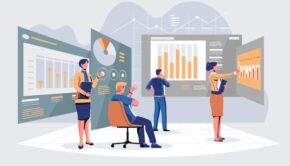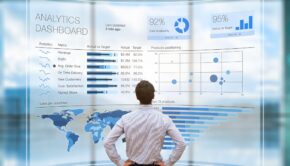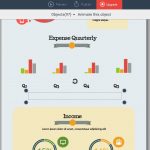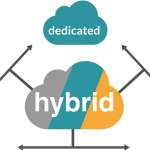How 5 Industries Are Capitalizing on Data Analytics
Pick an industry, any industry. Chances are it’s already in the midst of a transformation being fueled by advances in data analytics. With faster insights now available to a wider range of employees, companies are incorporating data insights into decision-making at every level.

These five industries are actively capitalizing on data analytics.
Sports and Fitness
Digitalist Magazine outlines how German tennis player Angelique Kerber leverages analytics to improve her game. She and her coach analyze data about missed shots, ball speed, court temperatures, wind velocity and many more factors. They also analyze competitors based on shot type and service returns to look for potential soft spots.
People are also increasingly using wearable devices to collect data — about sleep and workouts, for example — to monitor their health and make performance decisions.
And, of course, fitness-related corporations are using cutting-edge data analytics to optimize their product offerings and marketing campaigns.
Insurance
Insurers have historically used data to underwrite policies, but advancements in analytics are allowing insurers to do even more with the information at their disposal.
According to Deloitte, here are a few key ways insurers are currently using data analytics to drive better business outcomes:
- Refining customer segmentation and marketing campaign targeting
- More effectively assessing risk while underwriting policies
- Reducing claim cost
- Identifying new streams of revenue growth
Pharmaceuticals
Artificial intelligence-driven analytics tools are helping optimize clinical drug trials — which have traditionally been expensive, time-consuming and inefficient.
One Fortune 500 pharmaceutical company has reduced the length of time it takes to get data-driven insights about drug trials from three months to three minutes. How? By giving scientists access to search-driven data analytics from ThoughtSpot, allowing them to analyze drug trial results in seconds and quickly identify side effects by patient cohort.
Here are some of the other ways pharmaceutical companies use data analytics to improve operations:
- Cross-matching patient history with available studies to quickly find trials that match
- Checking patient eligibility based on inclusion and exclusion criteria
- Accelerating the drug development lifecycle while lowering its cost
- Reducing bias and error by improving data collection quality
Travel
The travel industry as a whole is using data to proactively address inefficiencies and improve operations.
Travel companies often use data to figure out exactly how much people are willing to pay for certain lodging and transportation services. But now customers are able to use data to critically evaluate their options for bookings rather than having to choose from a small list of prescribed ones. Services like Trivago “analyze a large pool of hotel data and present it in a way that’s easy for consumers to navigate,” which changes how they make decisions in regard to reservations.
Entertainment
Ever wonder how streaming media platforms seem to understand exactly what you want to watch at any given time? Companies within the entertainment industry use customer behavior and demographic data to improve the relevancy of their marketing efforts and recommendations.
Companies are also deciding which movies and shows get made based on data analytics, and which products to offer. Here’s how Dave Hastings, the director of product analytics, data science and engineering at Netflix, describes it: “You do not make a $100 million investment these days without an awful lot of analytics.”
The efficiency with which companies in these five industries harness data will greatly affect their competitive standings in the years to come.











![Into The Depths – How Deep Do We Need To Go For Oil? [Infographic]](https://technofaq.org/wp-content/uploads/2017/03/oil-150x150.jpg)





